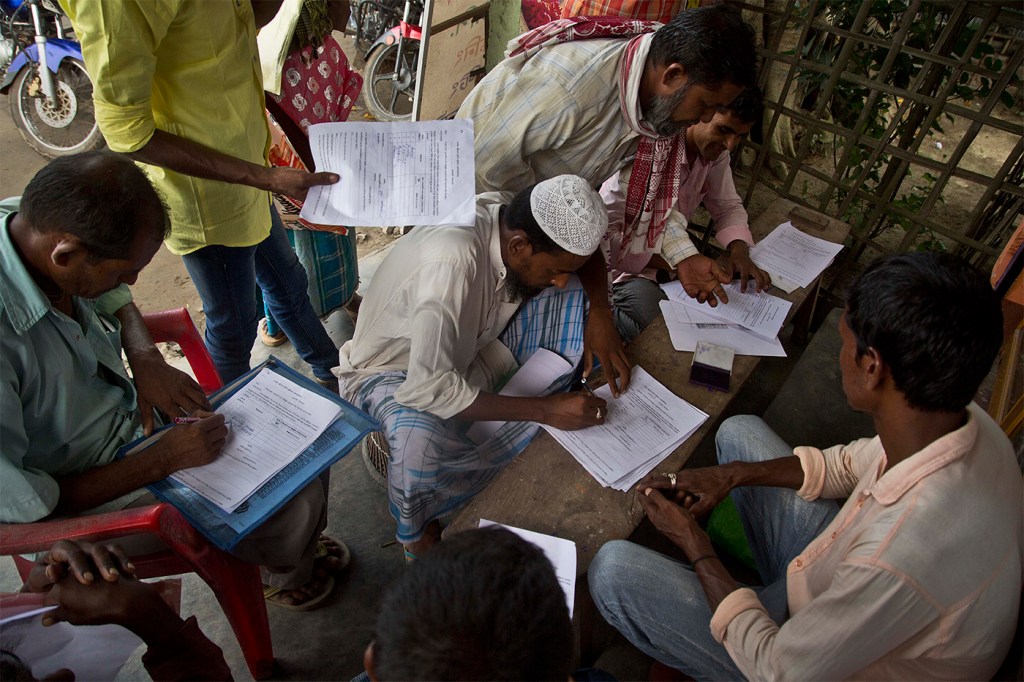India has a plan to deport millions of Muslim immigrants. Here’s why it’s failing.

More than four million residents of India may be blacklisted as foreign migrants on Saturday, in what is being called the biggest disenfranchisement exercise in history. But the crackdown on illegal immigration is unlikely to trigger instant deportations on a grand scale, according to Northeastern professor Liza Weinstein, whose focus includes the urban political economy of India.
Too many people in India lack the documentation to prove their citizenship, says Weinstein, which may force the government to scale back its expectations.
“I do not believe that over four million people will be deported,” says Weinstein, who chairs Northeastern’s Department of Sociology and Anthropology. “This rollout ended up being much messier than the government intended it to be.”

Liza Weinstein, department chair and associate professor of sociology. Photo by Ruby Wallau/Northeastern University
For the past four years, the 31 million residents of Assam, a state in northeastern India, have been ordered to prove their citizenship. The Hindu nationalist government of prime minister Narendra Modi is focused on Muslims who entered India illegally.
The government is expected to publish its National Register of Citizens on Saturday. Detention centers and other means of prosecution have been sprouting up in anticipation of the deadline.
Weinstein points out that many legal citizens lack the documents or political sophistication to prove that they belong in India. A provisional list of people who may be denied citizenship included many Hindus.
“This net that they intended to use to sweep up Muslims and minorities has actually caught Hindus in it,” Weinstein says. “More Hindus have been purged [from the provisional list] than have Muslims. And that is something they didn’t anticipate.”
What is driving this focus on foreign migrants?
Many analysts have understood this as being connected to India teetering on economic recession. There’s an economic slowdown, growth rates are lower, and this is a way to turn people’s attention away from that and onto something else.
There is a large population of Rohingya Muslims who have come into Assam because of persecution in [neighboring] Myanmar. They’ve been scapegoated for a lot of the economic difficulties that people are having. A whole range of social ills are blamed on the immigrant population, as we see right-wing governments do around the world: Whatever problems you have, you blame them on the immigrants.
It’s also very much on brand with Modi’s type of Hindu nationalism: India for Hindus.
What is the backstory? How has the anti-migrant wave developed in India?
When it gained independence from Britain in 1947, India was not established as a Hindu country. The framers of India’s constitution were inspired by the U.S. Constitution. It was established as a secular country, a place where all religious minorities would have a home.
And so there was the perception in 1947 that Hinduism was being suppressed. A member of the RSS, which is the Hindu nationalist [paramilitary] army, assassinated Gandhi, because he and the RSS perceived that the independence leaders—Gandhi among them—was not true enough to the Hindu identity. That was always beneath the surface, and in the 1980s it began to come together as a national political movement.
When Modi came in [as prime minister in 2014] it was about establishing the Hindu nation yet again. The recent elections in May demonstrated the overwhelming support that the BJP has across the country. And that has really emboldened this movement. The sense has emerged that the Hindu right has a significant political mandate.
Why has it been so difficult to register legal citizens in Assam?
There has been significant population movement in India under conditions of war and extreme violence, and people aren’t bringing birth certificates with them—or birth certificates are being destroyed. And so what you have going on in Assam is this massive documentation struggle. I think it’s just because documents are messy, and many people don’t have them.
This isn’t the first time they’ve done one of these big, bold things. In 2016, the Modi government removed more than 75% of the paper bills in the country and took them out of circulation. The claim was that there was too much counterfeit money floating around. And then they realized that so much of the country actually runs on paper cash—the entire economy shut down for months, there were runs on banks, and nobody could get enough paper into circulation. I think they’re finding something quite similar with respect to this registry.
Have there been protests within India?
The protests are coming primarily from an intellectual elite, or what is perceived to be an intellectual elite. They’ve been largely marginalized. The universities have had significant crackdowns on free speech. I have friends who are very vocal about these things, but who are also very afraid about the repercussions and the political consequences of speaking out. I think that has served to silence a potentially vocal opposition.
There is a sense of defeat and deflation on the part of the opposition, that the mandate seemed so strong in the last election, and that they feel small in numbers. On one hand, they feel powerless; on the other hand, they’re fearing political retribution for speaking out.
Given that so many Hindus have been swept up in this search for foreign migrants, what are you expecting when the list of non-citizens is revealed on Saturday?
I think that the courts are going to be involved. My prediction is that there’s going to be a stay order, because it’s messier than they anticipated.
But they’re going to keep trying. This is something that the Modi government and BJP would like to do across India.
For media inquiries, please contact Marirose Sartoretto at m.sartoretto@northeastern.edu or 617-373-5718.






